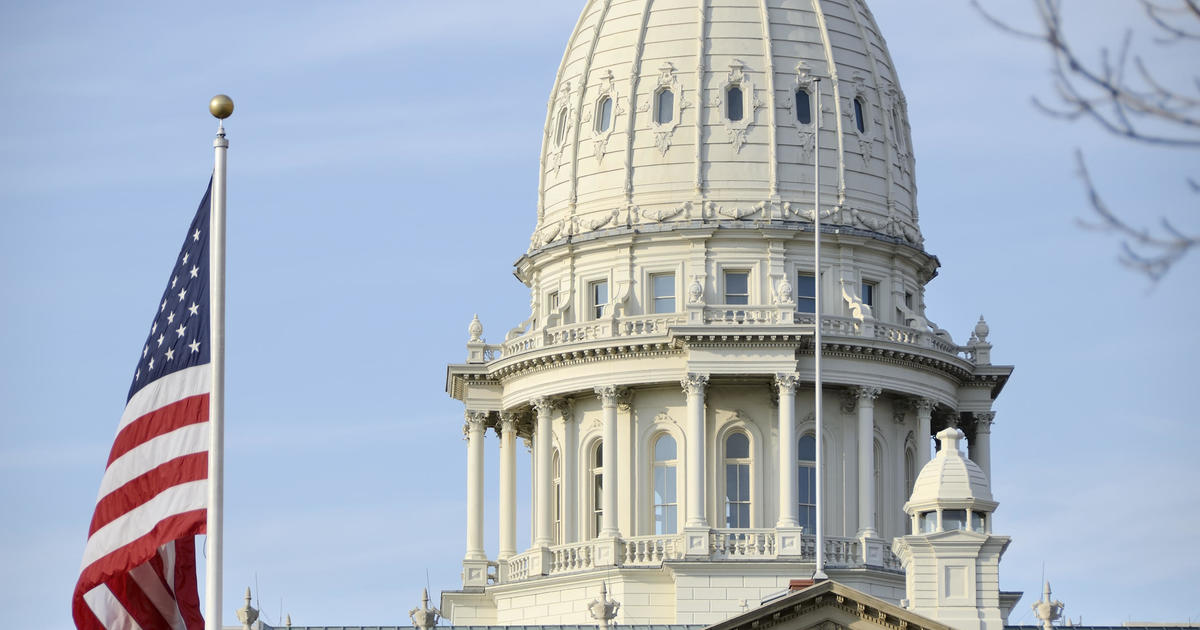Focus Is On Energy Rewrite In Last Days Of Legislative Term
By David Eggert, Associated Press
LANSING (AP) - With just days left in the two-year term, the Michigan Legislature may be inching toward votes on what is billed as a comprehensive rewrite of state energy laws — legislation that Gov. Rick Snyder has made clear is his highest priority.
The bills, which have divided majority House Republicans, would update 2008 policies that govern the regulation of utility giants and their competitors, require minimum amounts of renewable sources of electricity and set efficiency benchmarks. It is a complex issue but one that affects customer bills, jobs and the environment.
The state's two dominant, regulated utilities — DTE Energy and Consumers Energy — and major business interests are lobbying legislators to act now to ensure there is reliable power as old coal-fired plants close across the Midwest.
"Doing nothing is not an option and simply places Michigan's reliability at risk," said Steve Transeth, a former state Public Service Commission member and an adviser to Citizens for Michigan's Energy Future. The utility-backed advocacy group spent nearly $7.5 million in 2015, primarily on TV and radio advertising that made similar arguments to the public.
Opponents, namely alternative suppliers that sell electricity at unregulated rates, say the legislation passed by the GOP-led Senate would effectively kill the law giving them up to 10 percent of the market. That would hurt companies and many schools districts that have saved money through the "choice" program.
Pete Lund, the Michigan director of the conservative group Americans for Prosperity, which opposes the bills, said the utilities "put way too much money in this campaign to just walk away a week before the end of lame duck" — a reference to the postelection session before more than a third of the 110-member House turns over in January. "They're going to fight to the end."
Snyder, too, is pressing for the House to pass the plan.
Key components would:
— Require electric providers to produce 15 percent of their power from wind or other renewable sources by the end of 2021, up from 10 percent now. The legislation would set a non-binding goal of meeting 35 percent of Michigan's power needs by 2025 through a combination of renewable energy and energy conservation.
Some Republicans oppose boosting the mandate by 5 percentage points, but the provision appears safe because it is backed by Democrats who are needed to advance the bills out of the chamber. James Clift, the policy director for the Michigan Environmental Council, is asking lawmakers to remove "loopholes" that he said could in reality set the renewable requirement below 15 percent.
— Preserve the 10 percent cap on competition, though critics say excessive new charges imposed on competitors would put them at a disadvantage. The utilities say their customers — the large majority of people and entities in the state — are unfairly subsidizing choice participants under the current system.
— Keep intact, at least through 2020, a requirement that utilities save a minimum amount of power each year with efficiency programs. There is a dispute, though, over whether the incentives that utilities are paid for exceeding efficiency standards should be sweetened. "The Senate version increased the bonuses even if they're doing the same thing they're doing today," Clift said.
— Apply a "grid" charge to any new customer participating in a net metering program. These are residents and businesses with their own wind turbines, solar panel or other types of renewable sources that reduce their electric bills. Rep. Sam Singh, D- East Lansing, said the Senate bills would make it too expensive for farmers and others to install solar panels on their property. If the issue is resolved in coming days, "I think you'll see a good number of Democrats being able to support an energy package," he said.
The legislation also would eliminate utilities' ability to self-implement rate hikes, lower the threshold for when utilities would have to file for a certificate of necessity before building plants or buying capacity and provide money to hire more state employees to implement the new laws.
House Speaker Kevin Cotter, R-Mount Pleasant, told reporters Tuesday he could not predict if the energy overhaul would "get done or not. We have a very real issue with our ability to generate our capacity. I think it needs to be addressed, but there's broad disagreement as to what the solution looks like."
© Copyright 2016 The Associated Press. All Rights Reserved. This material may not be published, broadcast, rewritten or redistributed.



